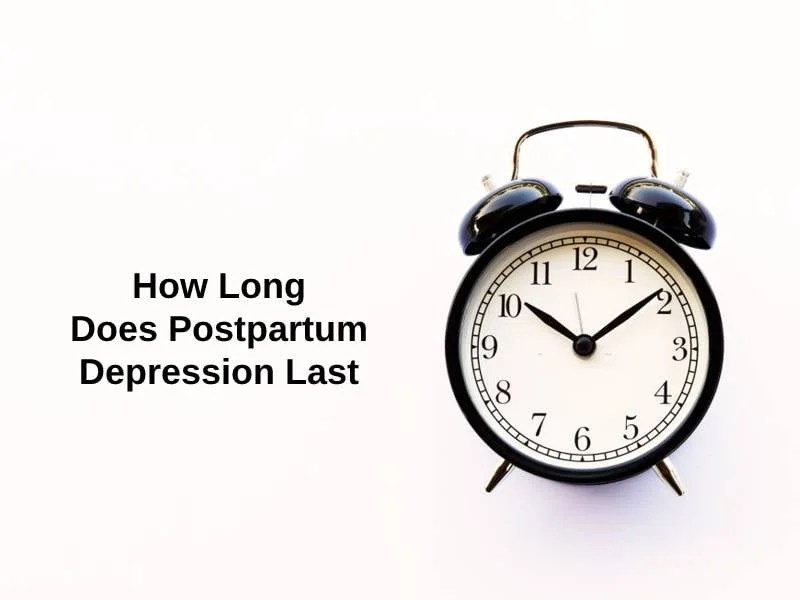Exact Answer: 4 Weeks To 12 Months
Postpartum Depression or PPD Is a type of depression that is suffered by a mother following childbirth. The word “postpartum” itself means the time after childbirth. It arises from the combination of hormonal changes, psychological adjustment to motherhood, and fatigue.
Most women who get the baby blues, feel sad or empty within a few days after giving birth. It causes strong feelings of anxiety, worry, and tiredness that last for a long time after giving birth. These feelings make it difficult for the mother to take care of herself and the baby.
PPD begins during the postpartum period of the first 4 – 6 weeks after birth. However, it can also develop during pregnancy and can last up to 1 year after giving birth. Those who develop postpartum depression are at a greater risk of developing major depression later on in their life.

How Long Does Postpartum Depression Last?
Postpartum Depression can linger for months or even years if left untreated. The postpartum period is an especially vulnerable time during which many of the common causes of clinical depression, such as biological changes, extreme stress, and several major changes, all happen at the same time.
As PPD can appear anywhere from a couple of weeks to 12 months after childbirth, there’s no average length of time as to how long it can last.
A survey in 2014 suggested that most probably the cases of depression resolve between 3 – 6 months after they begin. Around 30% – 50% of people studied in the survey suffered PPD for around 1 year after giving birth. Few people also reported depressive symptoms for about 3 years after postpartum.
| Condition | Duration |
| Period of intense changes characterized by mood swings and minimal sleep. | 1 – 6 months |
| If low mood still lingers, recovery treatment comprises of therapy, medication, or self-care practices like meditation or yoga. | 6 – 1 year |
| Only a small group of women may experience PPD symptoms for years after birth. Consulting a doctor is a must in such cases. | 1 – 4 years |
Why Does Postpartum Depression Last This Long?
The timeline for PPD is different for everyone. If one has certain risk factors, their PPD can last long even with treatment. The signs and symptoms of postpartum depression may change as time goes on. As there is no standard postpartum depression timeline, women may experience symptoms of depression in few weeks or even months after the birth of their child.
Common symptoms include: loss of appetite, excessive crying or fatigue, difficulty in bonding with the baby, restlessness and insomnia, anxiety and panic attacks, feeling intensely overwhelmed, angry, hopeless, or shameful. No one can pinpoint the exact cause of PPD, but like any kind of depression, it is probably a combination of several different things happening altogether at the same time.
There are several risk factors for postpartum depression, but having a risk factor does not guarantee that one will suffer PPD. One of the strongest risk factors for postpartum depression is having had it before. One must talk to their doctor about mental health history as it is important for planning a safe and healthy postpartum period.
Anyone having concerns about how they feel after giving birth should immediately see a doctor who will be able to offer them effective treatment. The treatment options available for PPD include medications like antidepressants, transcranial magnetic stimulation, group therapy, counseling, etc.
Conclusion
Postpartum Depression is a complex mix of physical, emotional, and behavioral changes happening in some women after giving birth. Most cases of postpartum depression last for several months. It affects the entire body not just the brain. To recover from PPD quickly, one must get help as soon as possible.
Postpartum depression progresses differently for every individual, but the typical progression begins with mild depression symptoms that get worse over several months. Exhaustion, sadness, anxiety, and mood swings involving anger or fear are the most common symptoms of PPD. The sooner one gets help in such situations, the sooner can one feel better.